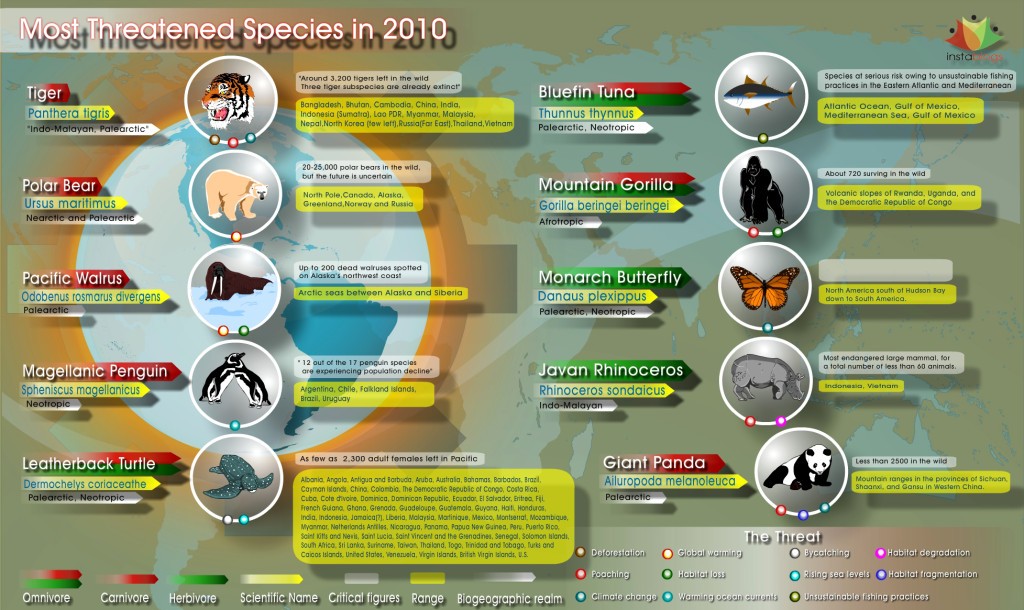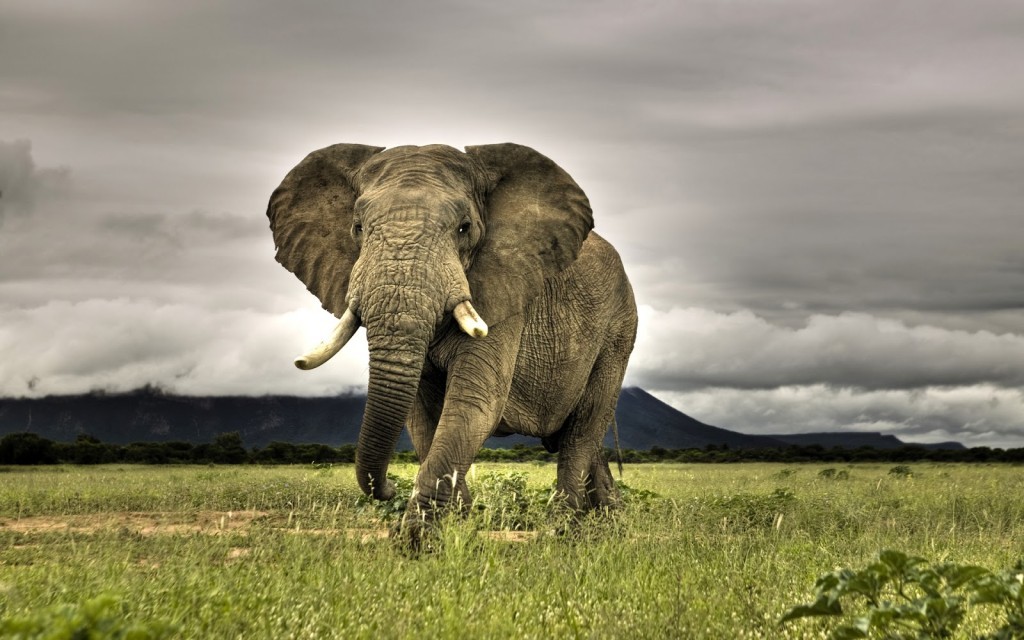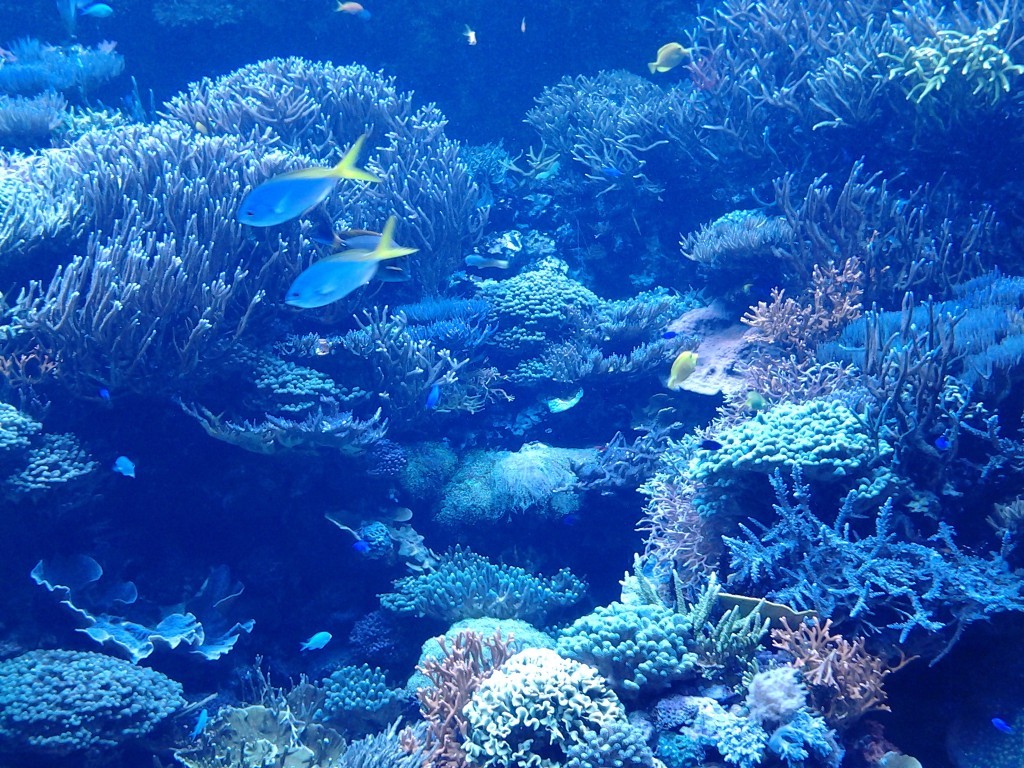A report by the World Wildlife Fund (WWF) states that the populations of mammals, birds, reptiles, amphibians and fish have declined by 52% over the last 40 years. Other wildlife populations have suffered even bigger losses with the freshwater species down by 76% since 1974, says WWF’s Living Planet Index Report.
Compiling a global average of species is a tedious task and requires comparisons of disparate data sets. Two years ago the report was more positive, showing a 30% loss of species. Prior calculations measured the average decline in all species, however new weighted methodology gives more accurate calculations. Unfortunately, this sophisticated methodology shows an upward trend for wildlife loss and is cause for alarm.
The index tracked the populations of more than 10,380 animal populations from 1970-2010 and showed the continual decline of these populations.
Some examples:
* a 90% drop in Ghana’s lion population
* forest felling limits forest elephants to 6-7% of their historic range in West Africa
* Tiger numbers in Nepal dropped from 100,000 to just 3,000 due to habitat loss
* Fish in the U.S. decreased by 83%, and 86% in Latin America
The report found that Kuwaitis had the biggest ecological footprint with a great deal of waste, followed by Qatar and the United Arab Emirates. After Denmark, Belgium, Trinidad and Tobago, and Singapore, the U.S. came eighth on the list, however the reprot stated that around 3.9 planets-wroth of land and resources would be needed to sustain the typical American lifestyle.
WWF states that humans are cutting down trees more quickly than these can regrow, are overfishing faster than the oceans can restock, are pumping water faster than rainfall can replenish rivers and emitting more carbon than can be absorbed by the earth.







































